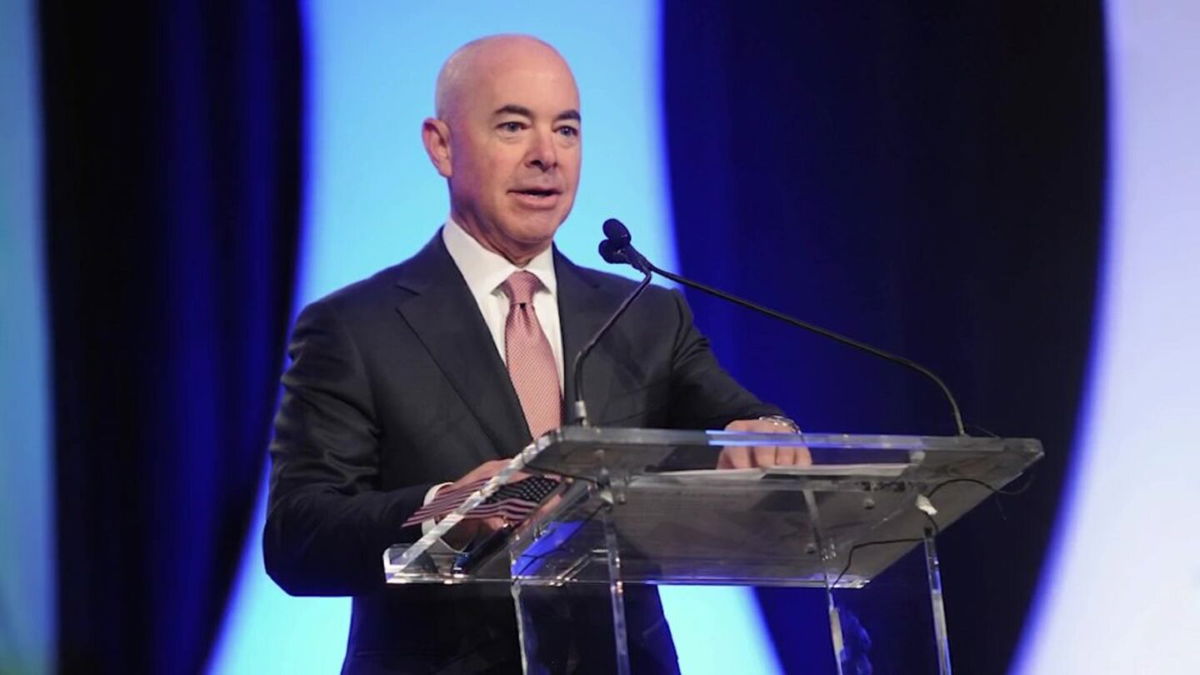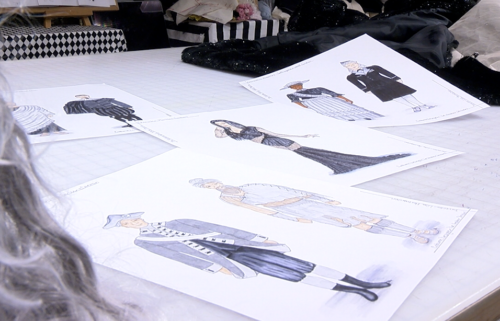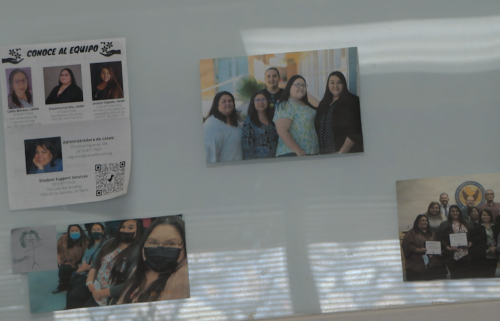Homeland Security chief visiting border in El Paso; 14,000 kids in custody

WASHINGTON, DC -- U.S. Homeland Security Secretary Alejandro Mayorkas was visiting El Paso on Friday for a tour of the U.S.-Mexico border and migrant processing facilities, officials confirmed to ABC-7.
U.S. Sens. Gary Peters (D-Michigan) and Rob Portman (R-Ohio), the chairman and ranking member of the Senate's Homeland Security Committee are touring with Mayorkas, sources told ABC News.
The trip comes as the federal government currently has more than 14,000 migrant children in its custody, administration officials had said on Thursday, even as they insisted that what is happening on the Mexican border does not constitute a "crisis."
The officials said there were more than 9,500 children in the custody of the Department of Health and Human Services and roughly 4,500 with U.S. Customs and Border Protection. That represents an increase from earlier this week. The average length of stay for a child in HHS custody is 34 days, an official added.
Appearing earlier Thursday on 'CBS This Morning,' Mayorkas was pushed on what the conditions are like inside the CBP facilities – one of which he said he recently toured.
“It's crowded, and remember we're dealing with a pandemic, and so we're dealing with restrictions on physical distancing and the like. But the mattresses, the blankets are actually selectively chosen so that they're safest for the children,” Mayorkas said. “So actually the equipment, the provisions that we give to these children are selectively chosen for their care. But I have to repeat because I don't mean to walk away from this, the border patrol station is not a place for children.”
No media nor the public has seen the conditions inside CBP or HHS facilities firsthand. Mayorkas added that Homeland Security was working with HHS to quickly set up more facilities to house these children.
Once again, he reiterated his message that he told a congressional panel earlier in the week: Do not come to the U.S.
“It's do not come because it is not safe to take the journey, it is not safe in a time of pandemic to arrive at the border. Families and single adults are being expelled. Let us build, let us rebuild,” he said in the CBS interview.
When asked if there is a good time to cross the border, Mayorkas punted.
“In weeks, in several months we will expand the legal processes that we already have started to rebuild. We already have reinstituted the Central American minors program that was built in the Obama/Biden administration that was torn down by the prior administration,” he said.
President Biden and his top advisers are said to be working urgently to devise solutions to the border situation, including scaling up capacity to house unaccompanied children and working with Mexico to help manage the flow of migrants from Central America.
The situation has drawn scrutiny and accusations that Biden's more welcoming stance on migrants led to a rush from Central America. Biden himself sought to refute that notion in an interview this week with ABC News.
But as the number of children in federal custody increases, the White House is under pressure to come up with a response that both alleviates the problem while maintaining the more humane approach that Biden campaigned on.
Briefing reporters on Thursday, senior administration officials insisted it was former President Donald Trump's policies that left them in the current predicament and said flows of migrants should be expected.
"Children presenting themselves at the border is not a national crisis," said one of the officials, speaking on the condition of anonymity.
"January 20 was not suddenly the moment the border looked differently. Numbers increase and decrease all the time," the official said. "Adults are being turned back. Most families are being turned back. We can process and protect children coming to our borders seeking help as the law requires and our administration is doing that."
Despite the administration's efforts to downplay the current surge of migrants, CBP is on pace to encounter more individuals on the border than in the last 20 years, Mayorkas told a congressional panel earlier this week. He said the agency is coming across children as young as six and seven years old.
The administration officials said Thursday that most adult migrants and migrant families were being expelled. But they acknowledged there were limitations on Mexico's ability to take in migrants, particularly those with young children. And they repeated that the Biden administration would not expel unaccompanied minors.
"We're dealing with the hand that we were dealt. The President inherited a mess," an official said. "We have a whole of government approach to clean up the mess."
The Biden administration's focus now is on expanding capacity at its facilities and speeding up the processing of unaccompanied children that would allow them to move out of the government's care more quickly, officials said on Thursday.
That includes altering Covid-19 protocols in ways that would increase the number of people allowed inside each facility, opening new facilities and paying for children's flights or transportation to be reunited with family members or guardians.
Officials also emphasized they were working through diplomatic channels to try and address root causes of migration from Central America, which include violence, poverty and -- this year -- two devastating hurricanes.
But those efforts are longer term. For now, the administration said it was trying to quickly scale up capacity at new CBP facilities in Texas and Arizona to house the incoming migrants while also providing a basic level of comfort.
An official said the temporary processing facility operated by CBP in Donna, Texas — which houses most of the unaccompanied children arriving at the border — "has been designed to be able to provide the best care that is possible under the circumstances."
The official said that included three meals a day, access to regular snacks, freedom of movement, telephone calls, showers and occasional outdoor recreational time.
"There is what I would say are folks doing the best they can to provide the care in a facility that is really not designed to be holding large numbers of children," an official said.
Media requests to tour the Donna facility have been repeatedly denied as DHS cites Covid restrictions. And while the White House said Wednesday it would discuss releasing publicly photos taken by an administration delegation of the Donna facility earlier this month, it sounded unlikely a day later.
"There was a private briefing, an internal briefing from several weeks ago. We typically don't provide those materials publicly, but we do want you to be able to, or a pool of media to be able to have your own visuals and get your own footage of these facilities," White House press secretary Jen Psaki said on Thursday.




